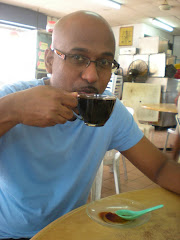There is a story by Roger Dawson of how the CEO of a multi-million dollar organization said that he doesn't really know how he makes decisions.
Then, there is a story popular among EQ trainers of how a manager secretly arranged for a work-tour for the husband and two teenage sons of one of his top performers to show them how hard the wife/mother is working everyday. His objective? To show the family that they need to give her a break once in a while so that she can re-charge. The reason? He made the decision that he didn't want to loose her.
In both these examples, critical decisions have been made. The former says he doesn't really know how he comes to his decisions while the latter clearly has thought out carefully of his decisions. In reality, we are the sum total of all the decisions that we have ever made in our lives and our lives will become as determined by the effects of the sum total of all future decisions that we are going to make. The same goes for organisations. General Electric, AirAsia, Toyota, Micosoft, Google,etc all have a common factor : Effecient Decision Making. Not always right decisions but effecient decision making processes.
The difference between a bad decision and a bad decision arrived at via an efficient decision making process is that the latter can be easily identified, corrected or abondened. Leaders at all levels of organizations must be able to think about thinking and decide how they come to their decisions. Otherwise, organisational strategies become fixed, rigid and inflexible. That is no way to do business in the 21st century.

No comments:
Post a Comment